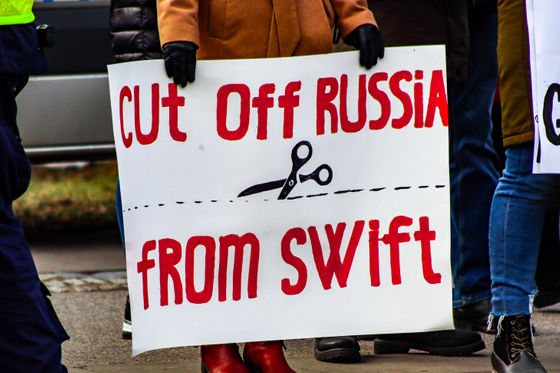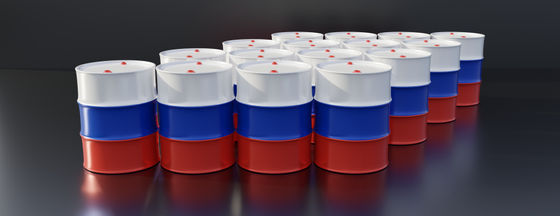How much damage has Russia suffered from economic sanctions?

The United States and other Western nations have imposed strict economic sanctions to counter Russia's invasion of Ukraine, which began in February 2022. However, it seems that economic sanctions have not been effective, as the market price of the Russian ruble, which temporarily plummeted, has returned to the level before the invasion of Ukraine. Sergei
War in Ukraine: Russia's reputedly'sanction proof' economy shows signs of stress
https://theconversation.com/war-in-ukraine-russias-reputedly-sanction-proof-economy-shows-signs-of-stress-181109
According to Guliyev, Russia's economy was stagnant before the war, but it was not critical from a macroeconomic point of view, that is, the economy of Russia as a whole. Economists say that such a situation is 'I'm stuck in a swamp so I don't have to worry about falling off a cliff.'
In fact, the Russian economy since 2013 has been trending at a GDP growth rate of around 1% on average annually. Although the Russian economy had issues such as 'business customs tied to corruption and political shackles, isolation from the international economy,' 'low government debt, the existence of sovereign wealth funds, and abundant foreign currency. Russia was able to continue its moderate economic growth because of its strengths such as “reserves”.

Also, when Russia
Against this background, it was customary among economists to compare Russia to a 'fortress' that can withstand economic sanctions. However, when the war actually began, Western countries imposed far stronger economic sanctions than originally envisioned. Specifically, not only the SWIFT exclusion of Russian banks, but also the central bank of Russia was subject to asset freeze sanctions, and foreign currency reserves, including sovereign wealth funds, were frozen.
If you can use foreign exchange reserves, that is, foreign assets owned by the Russian government, you can sell foreign exchange reserves to maintain the ruble's price and prevent inflation, that is, inflation, even if the ruble is about to fall. .. However, economic sanctions made Russia inaccessible to these assets, causing a financial panic in Russia.

In response, the Central Bank of Russia raised interest rates from 9.5% to 20%, regulated capital movements and closed financial markets. The closure of financial markets means that investors cannot sell their assets, so the prices of their assets will not fall. However, despite these measures, Russia's inflation rate remained at 2% a week for three weeks after the start of the war and 1% a week thereafter. It seems that 1% is not big, but when converted to an annual rate, it is equivalent to a surge of 68%. By comparison for reference, Japan's estimated inflation rate for 2022 is
In addition, export restrictions and corporate boycotts have exacerbated Russia's economic isolation. For example, the United States and Canada have banned oil imports from Russia, followed by European companies. The United States and Europe have also banned the export of advanced technology to Russia, and private companies have also joined the embargo. As a result, many companies, from companies familiar with civilian life such as IKEA and McDonald's to aerospace equipment manufacturers such as Airbus and Boeing, have stopped operating in Russia.
Of particular concern to Russia is that much of Russia's industry relies on Western technology. For example, because the Russian automobile industry is made up of imported parts, automobile manufacturers that have been expanding into Russia are shutting down their factories one after another. As a result, vehicle sales in Russia in March 2022 fell to one-third of the same month last year. In this regard, Guliyev said, 'When exposed to inflation, people tend to buy durable goods, which is particularly impressive.'

As a result, Russia's outlook for economic growth has been forced to make major revisions. Before the war, Russia's GDP growth in 2022 was estimated to be 'plus 3%', reflecting the recovery from the pandemic recession, but GDP growth announced by the Russian central bank in March. The expected rate was '
Moreover, according to Mr. Guliyev, the future will be a serious hardship for the Russian economy. There are four reasons for this.
-Being isolated from the world's capital and technology by sanctions.
-The business opportunities of domestic companies have been lost due to the tightening of regulations.
・Engineers and experts have been leaked due to the war.
・ There is a high possibility of additional sanctions by the West.
The fourth additional sanction is in response to the ever- increasing evidence of Russian war crimes . European leaders are moving to target fuel from Russia as a regulatory target, which is a major blow to the Russian economy, which accounts for about 40% of revenues and 60% of exports from oil and gas alone. increase. Also, if Western countries work together to put pressure on China, it is less likely that China's money and technology will flow to Russia.

In this regard, Griev said, 'Even if central bank control has succeeded in supporting the ruble and slowing inflation, these underlying factors make it unlikely that the Russian economy will recover before the start of the war. Increasingly, the Russian economy may calm down in a year or two, but it will not be able to recover to prewar levels immediately and will continue to lag behind the economies of developed countries. To what extent this economic shock is Russia No one knows if it will affect the politics of Russia, but it is certain that President Putin will have to devote resources to police, publicity and the military to curb the dissatisfaction of the increasingly unhappy Russians. Let's do it. '
Related Posts:
in Note, Posted by log1l_ks







